How German immigrant who knew nothing about shoes started US Birkenstock craze after realizing they cured her chronic foot pain, with hippy health food stores the only place that would initially sell them
A German-American woman unknowingly started the Birkenstock sandal craze that spread from Germany to the rest of the world, including Barbie Land.
Margot Fraser, who died in 2017 aged 88, transformed the Birkenstock brand from a German medical solution to a global fashion trend.
Suffering from chronic foot pain, Fraser picked up a pair of Birkenstock’s Madrid sandals to help with the discomfort when she was on a trip back to her native Germany in 1966.
‘Her toes straightened. Her back feels better. She was so impressed that she contacted Karl Birkenstock to investigate importing his family’s ‘funny sandals’ to the US’, Birkenstock said.
Almost 60 years later, Birkenstock announced this week that it was floating on the New York Stock Exchange with an estimated value of $9.2bn (£7.6bn).
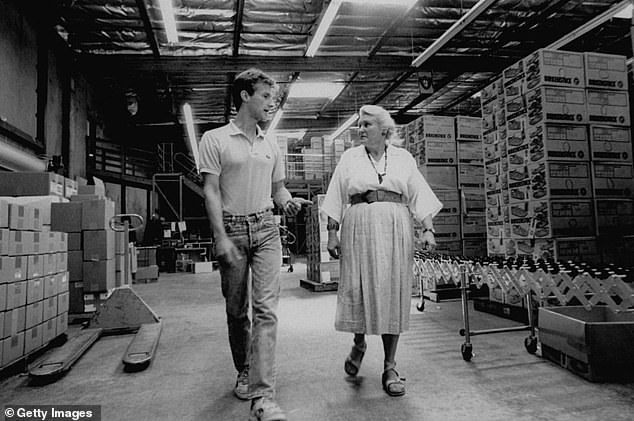
Margot Fraser, who died in 2017 at the age of 88, transformed the Birkenstock brand from a German medical solution to a global fashion trend.
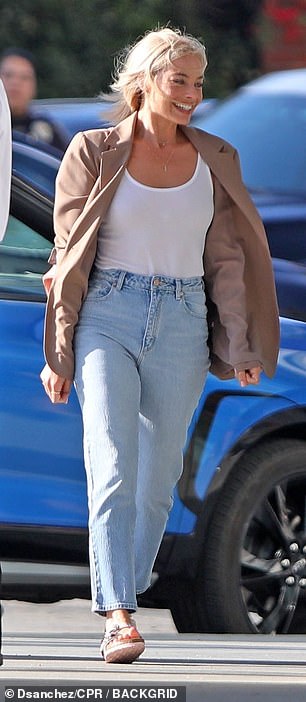
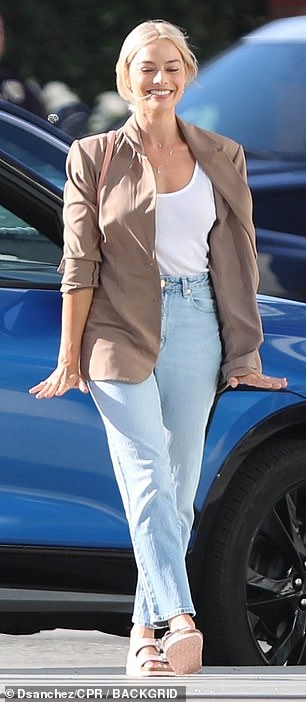
A pair of Birkenstocks made not one, but two appearances in this year’s blockbuster movie, Barbie. Sales of Birkenstocks rose by 300 percent as a result
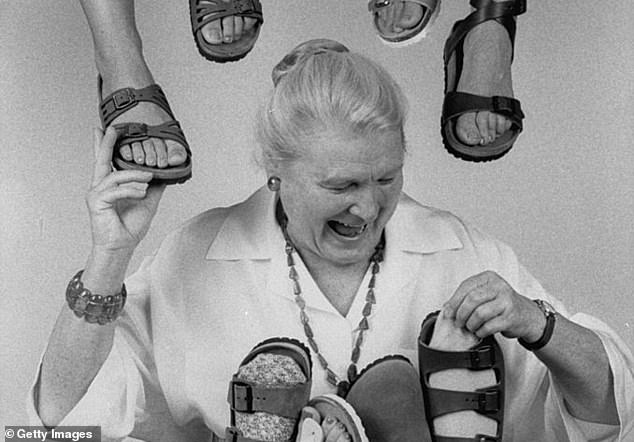
Suffering from chronic foot pain, Fraser picked up a pair of Birkenstock’s Madrid sandals to help with the discomfort when she was on a trip back to her native Germany in 1966.
After failing to impress American shoe shop owners with what many called the ‘ugly’ sandals, a friend of Margot’s suggested she set up a stall for the sandals at a health food convention in San Francisco. She did, and Fraser said the store managers who rejected her idea were soon begging her for a pair.
Fraser, a tailor, was born in 1929 and grew up in Berlin, but moved to Northern California in the early 60s and married an American.
She wrote in her 2009 book Dealing with the Tough Stuff: ‘All women’s shoes were narrow and had pointed toes. Even the so-called healthy shoes still had heels. Because millions of women in the United States had painful feet, I thought it would be easy to get them into these amazing shoes.’
The original Birkenstock style, the Madrid, featured a contoured cork footbed and a crossed buckle strap across the toes. The purpose of the shoe was to force the owner to grip the toe strap to prevent the shoe from falling off so they could tone their calf muscle. Germans called this phenomenon ‘Angstreflex’ which means ‘fear reflex’.
Fraser tells The New Yorker that after she started stocking Birkenstocks at the San Fran health food store (next to the granola), the storekeepers would tell her, ‘Look, there’s a health food store down my street, and people are walking out with shoeboxes. They should be walking out of my shop with shoeboxes.’
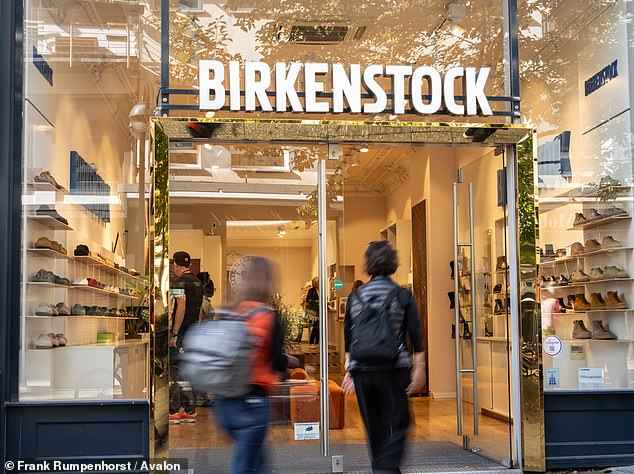
She was so impressed with the results wearing the sandals had on her feet that she personally contacted Karl Birkenstock to suggest importing his magic shoes
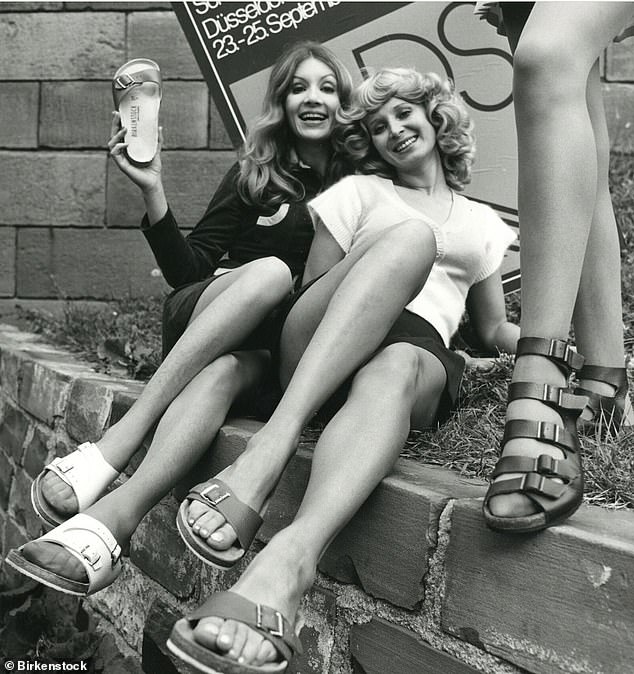
Fraser said that after she started stocking Birkenstocks at the San Fran health food store (next to the granola), the store clerks would tell her, ‘Look, there’s a health food store down my street, and people are walking out with shoeboxes. They should be walking out of my store with shoeboxes’
In the 70s, Birkenstock released another style of sandal, the Arizona, which is the brand’s most popular style today. But even the new model was still considered just a hippie shoe for decades.
Over the years, Birkenstocks have consistently popped up in the fashion industry and popular culture.
Birkenstock’s most popular style has long been the double-buckle Arizona, but the recent popularity of the Boston clog has given the classic sandal a run for its money. A standard pair of Arizonas retails for $110, and a pair of Bostons will set you back $158.
Kate Moss wore a pair of Birkenstocks in one of her first photo shoots when she was 16 years old and makes the ‘ugly’ ‘hippie’ shoes cool.
In 2019, nearly 24 million pairs were sold in more than 100 countries. This week Birkenstock – whose majority stake is now owned by a US finance company backed by French luxury house LVMH – announced it was floating on the New York Stock Exchange with an estimated value of $9.2bn (£7.6 billion).
In 2022, Steve Jobs’ old worn Birkenstocks, which were a staple in his iconic ‘uniform’, were set to be auctioned for up to $80,000 – but ended up selling for $200,000.
A pair of Birkenstocks made not one, but two appearances in this year’s blockbuster movie, Barbie. Sales of Birkenstocks rose by 300 percent as a result.
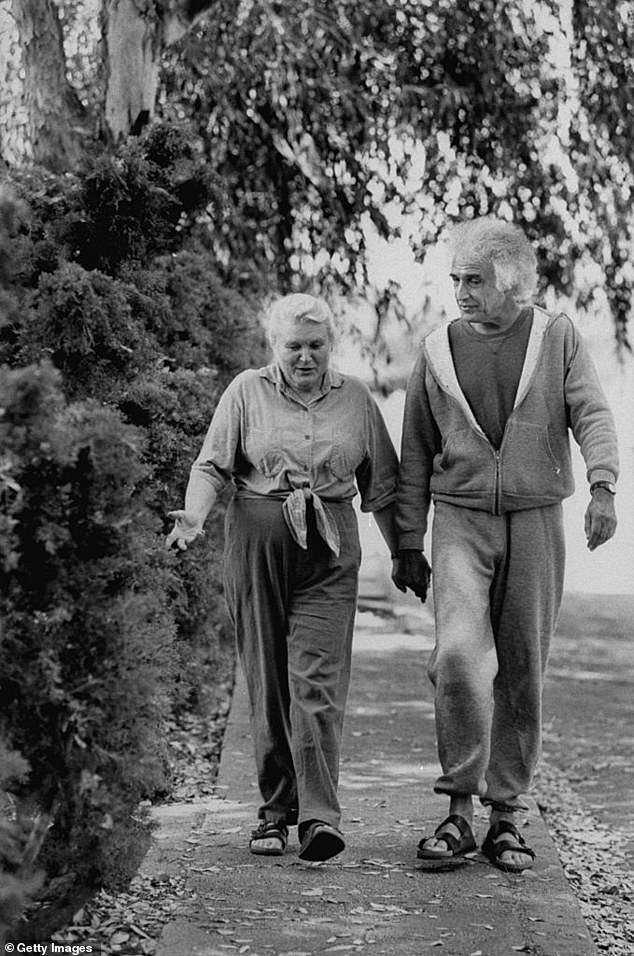
After failing to impress shoe shop owners with what many called the ‘ugly’ sandals, a friend of Margot’s suggested she set up a stall for the sandals at a health food convention in San Francisco. She did, and Fraser said the store managers who rejected her idea were soon begging her for a pair
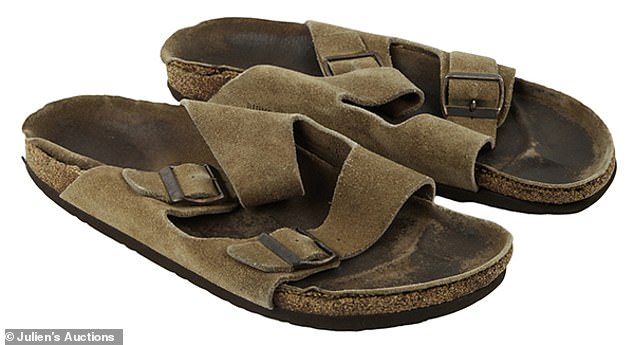
In 2022, Steve Jobs’ old worn Birkenstocks, which were a staple in his iconic ‘uniform’, were set to be auctioned for up to $80,000 – but ended up selling for $200,000.
After Fraser died in 2017, Birkenstock created a Press release who credited the German-American tailor with their success.
‘Mrs. Fraser is responsible for bringing Birkenstock products to the US and for building the brand over its first 40 years in the market.’
The release said that when Fraser put on the sandals, “she immediately felt comfort and relief from the tight, poorly made shoes that were common at the time.”
‘She got the distribution rights and started building Birkenstock from her home in Northern California.
‘Mrs. Fraser was a humble trailblazer. She was a female entrepreneur at a time when that was quite rare. Without any traditional retail or footwear experience, she built a multimillion dollar business that brought comfort to millions of people.
‘She always did it, with a warm smile, a deep belief in the product and a genuine appreciation for the people she worked with throughout the industry.’
Fraser was inducted into the Footwear News Hall of Fame in 1997 and the National Shoe Retailers Association Hall of Fame in 2014.
Shares in Birkenstock began sliding on Wednesday afternoon just hours after they began trading on the New York Stock Exchange.
The stock opened at $41, well below the $46 price at which it was offered to investors in the days before it began trading on the stock exchange.
Birkenstock is now listed under the ticker symbol ‘BIRK’. The stock’s opening price gave the company a market value of about $7.7 billion, well below its initial public offering valuation of $8.6 billion last week.
